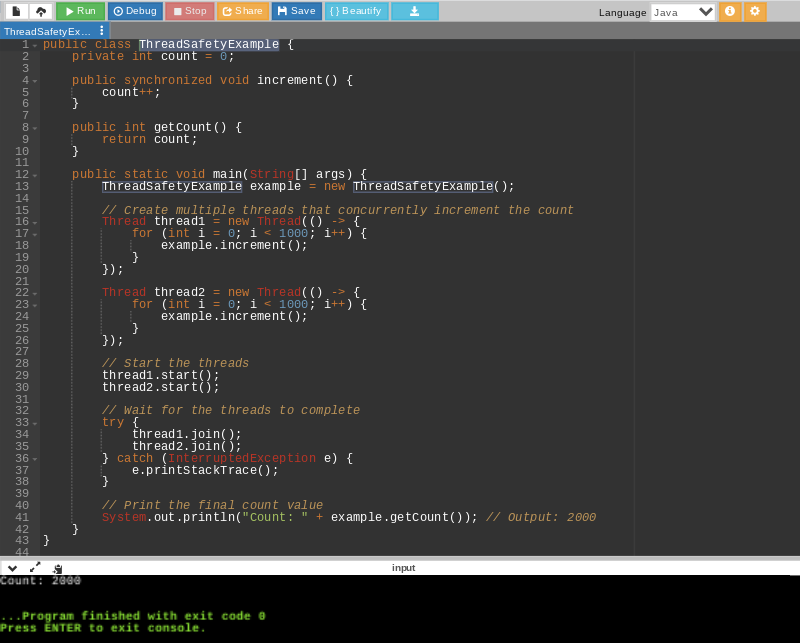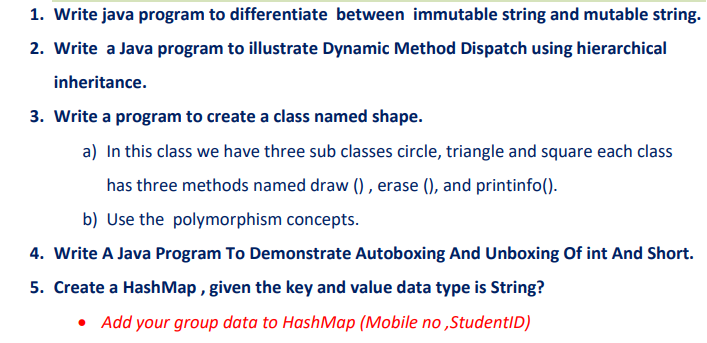Why Are Strings Immutable in Java? Trick Reasons and Benefits Explained
Why Are Strings Immutable in Java? Trick Reasons and Benefits Explained
Blog Article
Exploring the Benefits of Unalterable Strings in Modern Programming Paradigms
In the realm of modern-day programming standards, the idea of immutable strings stands as a foundation of robust software development. By adopting immutable strings, designers can make sure boosted data honesty, improved thread safety, streamlined debugging procedures, enhanced protection measures, and efficient efficiency optimization.
Boosted Data Integrity

By protecting against the adjustment of string things, immutability removes the risk of unintended adjustments to the data they hold. This not just improves the security of the details however also enhances the reliability of the code that relies upon these strings.
Immutability also sustains more secure multithreading settings, as simultaneous access to immutable strings does not present the threat of information corruption through simultaneous modifications. This building streamlines the procedure of managing strings in identical programming situations.
In essence, immutability serves as a safety shield around the information saved within strings, boosting their stability by ensuring that when defined, their worths stay unmodified throughout the program's execution.

Enhanced String Security
Immutable strings boost the thread security of programs by making certain that as soon as a string things is produced, its worth can not be customized. This residential property eliminates the threat of concurrent strings attempting to modify the exact same string simultaneously, which can cause information corruption or inconsistent states in the program - Why are strings immutable in Java?. In a multi-threaded setting, where numerous strings access and control information simultaneously, the immutability of strings provides a degree of security by ensuring that the information remains the same throughout its lifecycle
Simplified Debugging Processes
Offered the enhanced thread safety assisted in by immutable strings, a substantial advantage occurs in the world of simplified debugging processes. Unalterable strings, when produced, can not be modified, making it less complicated to map the circulation of data and recognize the resource of pests in a program. This immutability ensures that strings stay regular throughout the execution of the program, reducing the possibility of unforeseen adjustments that can result in errors.
When debugging with mutable strings, developers frequently run into issues where a string's value is changed inadvertently, making it challenging to determine the origin cause of a bug. However, with unalterable strings, the data stays the same, permitting developers to focus on evaluating the real logic of the code as opposed to finding where and when a look at this website string was modified improperly.
Additionally, immutable strings streamline the debugging procedure by enabling much easier recreation of bugs. Given that immutable strings do not change state, designers can recreate and examine insects a lot more effectively, causing quicker identification and resolution of problems within the codebase. This structured debugging process eventually adds to greater software high quality and enhanced general advancement efficiency.

Boosted Safety Measures
Enhancing data security and fortifying system integrity, the application of unalterable strings in software application applications contributes significantly to boosted safety and security measures. Immutable strings, when created, can not be changed, supplying a crucial defense against harmful tampering or unauthorized accessibility. By guaranteeing that delicate data saved in strings remains unaltered throughout the program's execution, the risk of data violations or shot strikes is greatly decreased. Why are strings immutable in Java?. Immutable strings likewise play a crucial role in stopping usual protection vulnerabilities such as barrier overflows and SQL shot strikes, as efforts to adjust string information at runtime are naturally limited.
Additionally, the immutability of strings enhances the predictability of program behavior, making it easier to confirm inputs and protect against unforeseen modifications that can compromise safety and security. This predictability simplifies the procedure of bookkeeping and verifying code, enabling designers to recognize prospective security technicalities better. In general, incorporating unalterable strings into software growth methods not only improves the toughness and dependability of applications however likewise enhances their strength against safety threats.
Reliable Performance Optimization
Building upon the foundation of increased protection procedures attained via the usage of unalterable strings, a vital facet to take into consideration in software application development is efficient efficiency optimization. When managing mutable strings, operations like concatenation or substring development typically cause the production of brand-new string things, leading to memory expenses and increased processing time. Nonetheless, with immutable strings, these operations can be enhanced to improve performance. By permitting strings to remain continuous and unchangeable, unalterable strings promote far better memory management and caching possibilities, ultimately enhancing the overall effectiveness of the software.
Given that immutable strings can not be customized when produced, they can be shared throughout threads without the risk of unanticipated modifications, decreasing the requirement for synchronization devices and boosting concurrency. Unalterable strings simplify debugging like this processes as programmers can rely on that a string's worth will certainly continue to be constant throughout the program's implementation, getting rid of potential errors created by mutable state changes.
Verdict
Finally, the benefits of utilizing immutable strings in modern shows paradigms can not be overstated. Enhanced information honesty, improved thread security, streamlined debugging procedures, increased security steps, and effective efficiency optimization all add to the general effectiveness of programs tasks. By integrating unalterable strings into shows techniques, designers can gain from a much more durable and trustworthy codebase.
Immutability, an essential function visit the site of strings in programming languages such as Java and Python, makes certain that once a string things is produced, it can not be altered or customized.Unalterable strings enhance the string safety and security of programs by making certain that once a string item is created, its value can not be changed. Immutable strings also play a vital function in preventing usual protection susceptabilities such as buffer overflows and SQL injection attacks, as efforts to manipulate string information at runtime are naturally limited.
By enabling strings to continue to be consistent and stable, unalterable strings help with better memory monitoring and caching possibilities, inevitably enhancing the total effectiveness of the software program.
Unalterable strings simplify debugging procedures as designers can rely on that a string's value will continue to be consistent throughout the program's execution, eliminating potential mistakes caused by mutable state changes.
Report this page